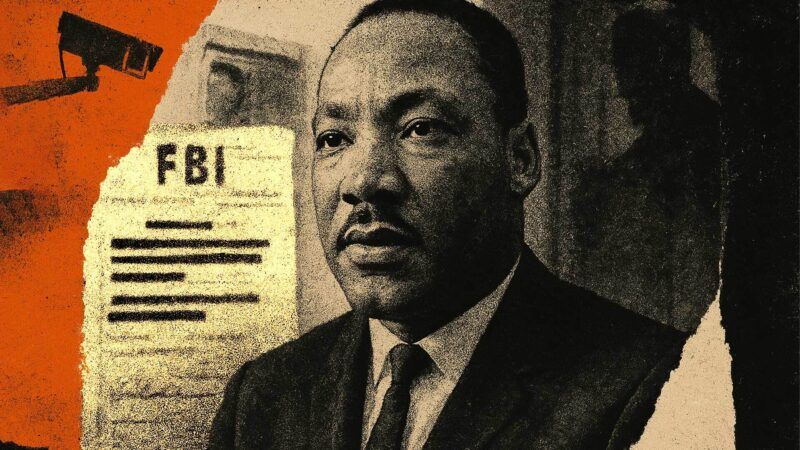Would Releasing the Martin Luther King Files Help Curb the Surveillance State?
The FBI spied on the civil rights leader for years. Would releasing its surveillance files just be a further violation of King's privacy, or would it make future abuses less likely?

The federal government is seeking to unseal long-classified FBI surveillance records on Martin Luther King Jr. nearly two years before their court-ordered release date (January 2027) and 56 years after his assassination. The King family and the Southern Christian Leadership Conference (SCLC), which King founded, have objected to the early release, arguing the files contain illegally obtained wiretaps and personal information that should remain private. However, the compelling public interest could outweigh the family's understandable desire to shield King's memory from renewed smear campaigns.
The FBI waged a psychological war against King through its COINTELPRO program, a counterintelligence operation targeting civil rights leaders suspected of communist ties. With backing from FBI Director J. Edgar Hoover and approval from Attorney General Robert F. Kennedy, agents illegally wiretapped King's home, offices, and hotel rooms. What started as a probe into alleged communist ties morphed into a protracted campaign to destroy King's reputation, utilizing fabricated stories, false documents, and anonymous threats.
The recordings and accounts of King's private life, deemed likely illegal and unethical by the House Select Committee on Assassinations in 1979, were sealed for 50 years by a federal court in 1977, following a lawsuit by King's associate and the SCLC.
A January executive order issued by President Donald Trump directs the Justice Department to seek an early release of the records, although officials claim their focus is only on documents related to King's assassination. On June 4, Judge Richard Leon of the U.S. District Court of the District of Columbia agreed to review the files before determining what will be released. "It's not going to happen overnight," Leon said. "The court is going to move very carefully."
King's youngest daughter, Bernice, and son, Martin Luther King III, have asked the court not to release the documents, arguing that it would infringe on the family's privacy. The Kings also cite the botched release of John F. Kennedy files that revealed Social Security numbers, and point to the FBI's attempts to blackmail and smear King as evidence that a premature, unvetted disclosure could be harmful.
Matthew Guariglia, senior policy analyst at the Electronic Frontier Foundation, tells Reason that the issue of privacy can be easily rectified. "The FBI or whoever is releasing these files has an opportunity to both preserve the privacy of the surveillance target and also reveal any historically significant facts about FBI methodology just by redacting a lot of the intentionally embarrassing surveillance information," he said.
Leon will be tasked with balancing the file's significance in American history against the privacy concerns of those who were illegally spied on. As Guariglia notes, the situation requires a nuanced approach: "Important historical documents should not be withheld and classified forever. That being said, I think motivation here is important."
While the King family's concerns are valid, the primary issue remains that the government collected such material in the first place. The Kings' objections are "shortsighted," Patrick Eddington, senior fellow at the Cato Institute, tells Reason. "In an age where government surveillance and political repression has become all too commonplace, I think the release of these records showing the FBI's prurient surveillance of King and attempts to blackmail him into abandoning the civil rights cause would be a powerful reminder to Americans about why the FBI's domestic surveillance activities need to be sharply curtailed."
The FBI's surveillance of Americans continues to this day, largely with the approval of policymakers. Despite multiple instances of illegal FBI surveillance, including monitoring protesters after the 2020 George Floyd riots and the January 6 Capitol riot, Congress extended Section 702 of the Foreign Intelligence Surveillance Act in 2024. This post-9/11 authority allows warrantless surveillance of foreigners abroad and the "incidental" collection of Americans' data.
While the explicit targeting of Americans is prohibited, the 2024 renewal endorses nearly all warrantless searches of Section 702 data, inevitably capturing Americans' private conversations in the process.
Unsealing the FBI's surveillance records on Dr. King would not violate his legacy—it would reaffirm the values he died fighting for: truth, accountability, and freedom from state repression. The release would be especially worthwhile if it leads to meaningful curbs on federal surveillance powers.


Show Comments (7)